Southampton vs Manchester United result: 5 things we learned as Solskjaer’s side fail to win again
Jannik Vestergaard cancelled out Daniel James’ opener to earn ten-man Southampton a point
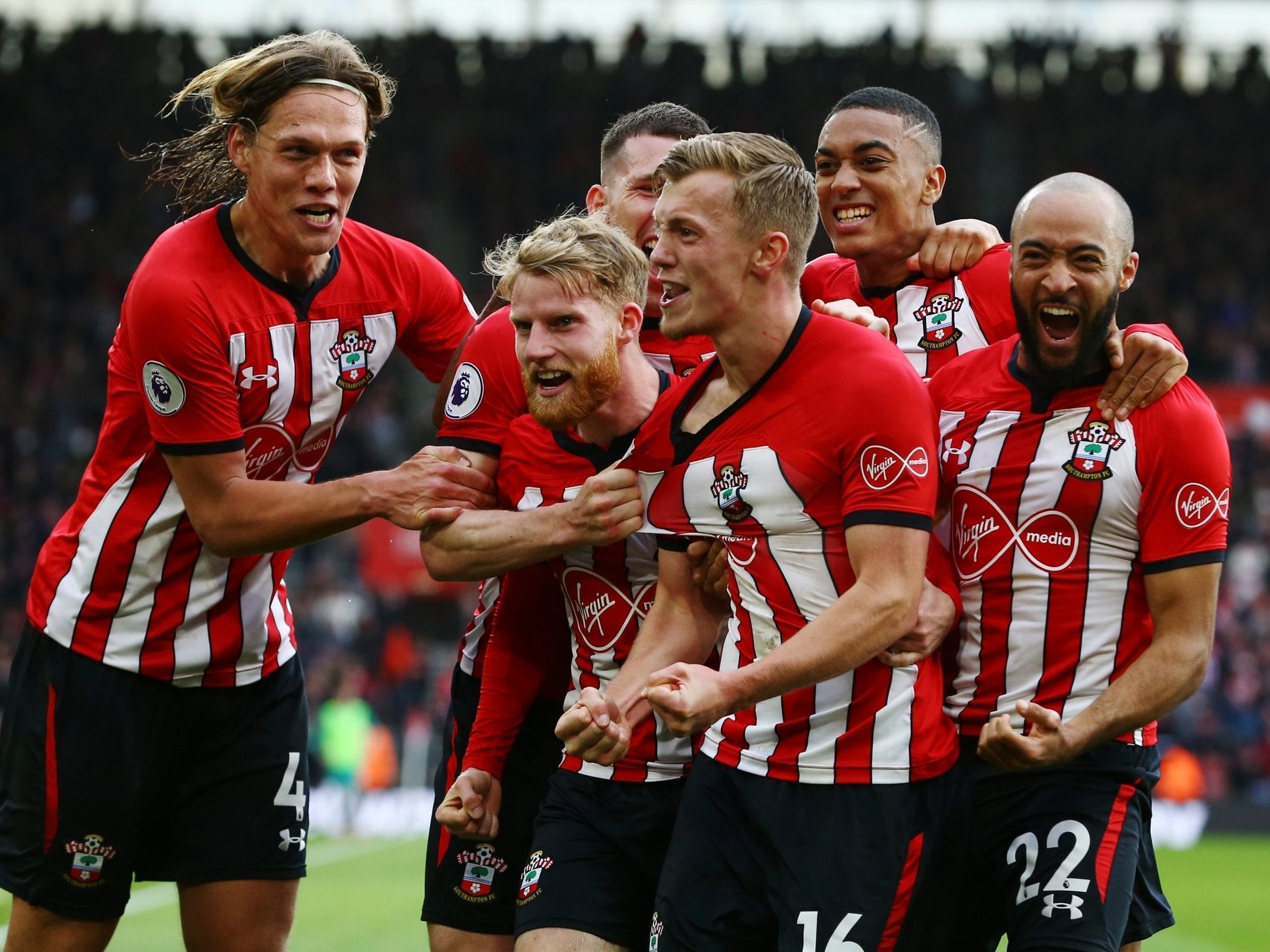
Your support helps us to tell the story
From reproductive rights to climate change to Big Tech, The Independent is on the ground when the story is developing. Whether it's investigating the financials of Elon Musk's pro-Trump PAC or producing our latest documentary, 'The A Word', which shines a light on the American women fighting for reproductive rights, we know how important it is to parse out the facts from the messaging.
At such a critical moment in US history, we need reporters on the ground. Your donation allows us to keep sending journalists to speak to both sides of the story.
The Independent is trusted by Americans across the entire political spectrum. And unlike many other quality news outlets, we choose not to lock Americans out of our reporting and analysis with paywalls. We believe quality journalism should be available to everyone, paid for by those who can afford it.
Your support makes all the difference.Southampton held Manchester United to a 1-1 draw at St Mary’s on another frustrating afternoon for Ole Gunnar Solskjaer’s side.
United dominated much of the first half, and took a deserved early lead as Daniel James unfurled a fierce finish into the top-right corner after cutting inside on to his right foot.
But towering centre-half Jannik Vestergaard climbed high above Victor Lindelof to head home the equaliser as the hosts seized second-half control, and though Kevin Danso was dismissed on 73 minutes, Southampton held on for a point.
The draw leaves Ole Gunnar Solskjaer with serious questions about the makeup of his side.
Here are five things we learned.
1. United’s starting eleven symptomatic of their fallen stock
A quick gaze down the Manchester United teamsheet reveals something rather shocking – they have but two players truly in their footballing primes.
The case can only really be made for Harry Maguire and Paul Pogba as fully-fledged and highly-coveted footballing entities, with perhaps David de Gea in goal added at a push, though the Spaniard is not as effective as he once was.
The rest are those still on their way up (Daniel James, Scott McTominay, Aaron Wan-Bissaka), those enjoying last hurrahs beyond a reasonable sell-by date (Juan Mata, Ashley Young), and then slightly more seasoned commodities like Victor Lindelof and Marcus Rashford, who both have clear development to make as footballers.
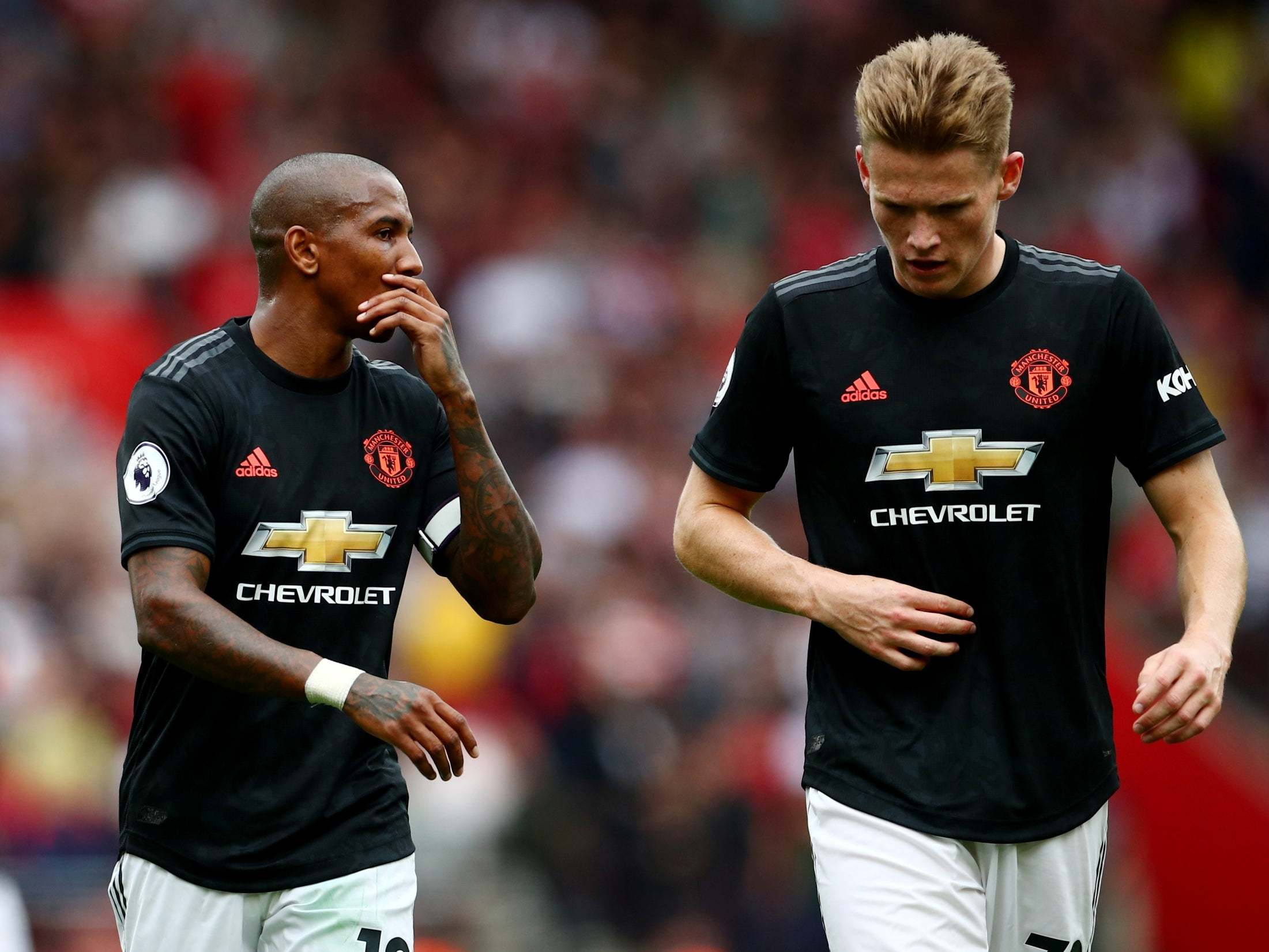
Recall the great Manchester United sides of years past and you will remember players very much at their peaks, or those very swiftly arriving there. Old Trafford was a destination for the world’s best, and even the middle-of-the-road squad-men (Park Ji-Sung, Darren Fletcher, etc.) were plodding through their primes.
Contrast those teams to this, and the difference is stark.
2. James looks an excellent signing
A signing not perhaps lauded in the manner that those of Maguire and Wan-Bissaka were, James is fast becoming a real difference-maker in the attacking trio.
It should be no surprise. James’ sheer athleticism gives him a trump card few others boast, and unlike certain speedsters of the past he has real intelligence in the final third, particularly in front of goal.
This was evident to a certain extent at Swansea last season, but since arriving at Old Trafford he has elevated himself to another level and rather quickly (as is very much his wont) evolved from fringe figure to vital forward threat.
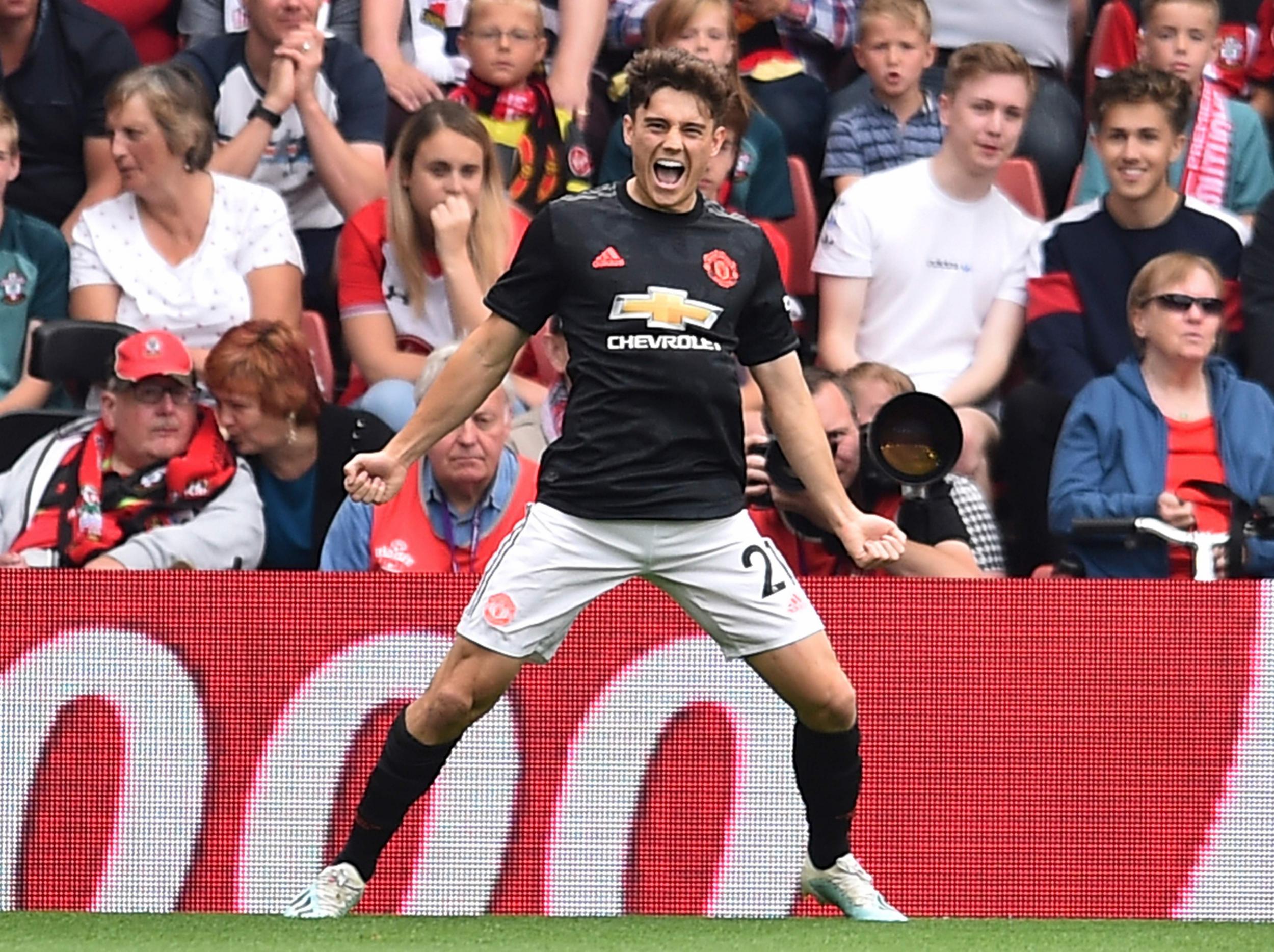
3. Hasenhuttl settles on favourite formation despite injuries
After recognising the flaws in his squad, Ralph Hasenhuttl was forced to utilise a five-at-the-back formation for most of last season and the first two games of this, but in last weekend’s win against Brighton he employed his preferred 4-2-2-2, and he stuck with the system against Manchester United.
It is a formation that makes sense for this Southampton squad. They possess solid striking options, but no-one particularly suited to operating in a lone role. It enables James Ward-Prowse to be pushed further forward and slightly wider, where his crossing and passing is more effective.
Yet it is not a formation without flaws. It demands much of the full-backs (Southampton will be better served when Ryan Bertrand is back from injury) and means only one true wide player can be deployed, which will leave one of Nathan Redmond – who came on hugely as a player last year – and the immensely exciting Moussa Djenepo on the bench. Soufiane Boufal is far from out of the picture, either, though he produced another frustratingly fleeting performance today.
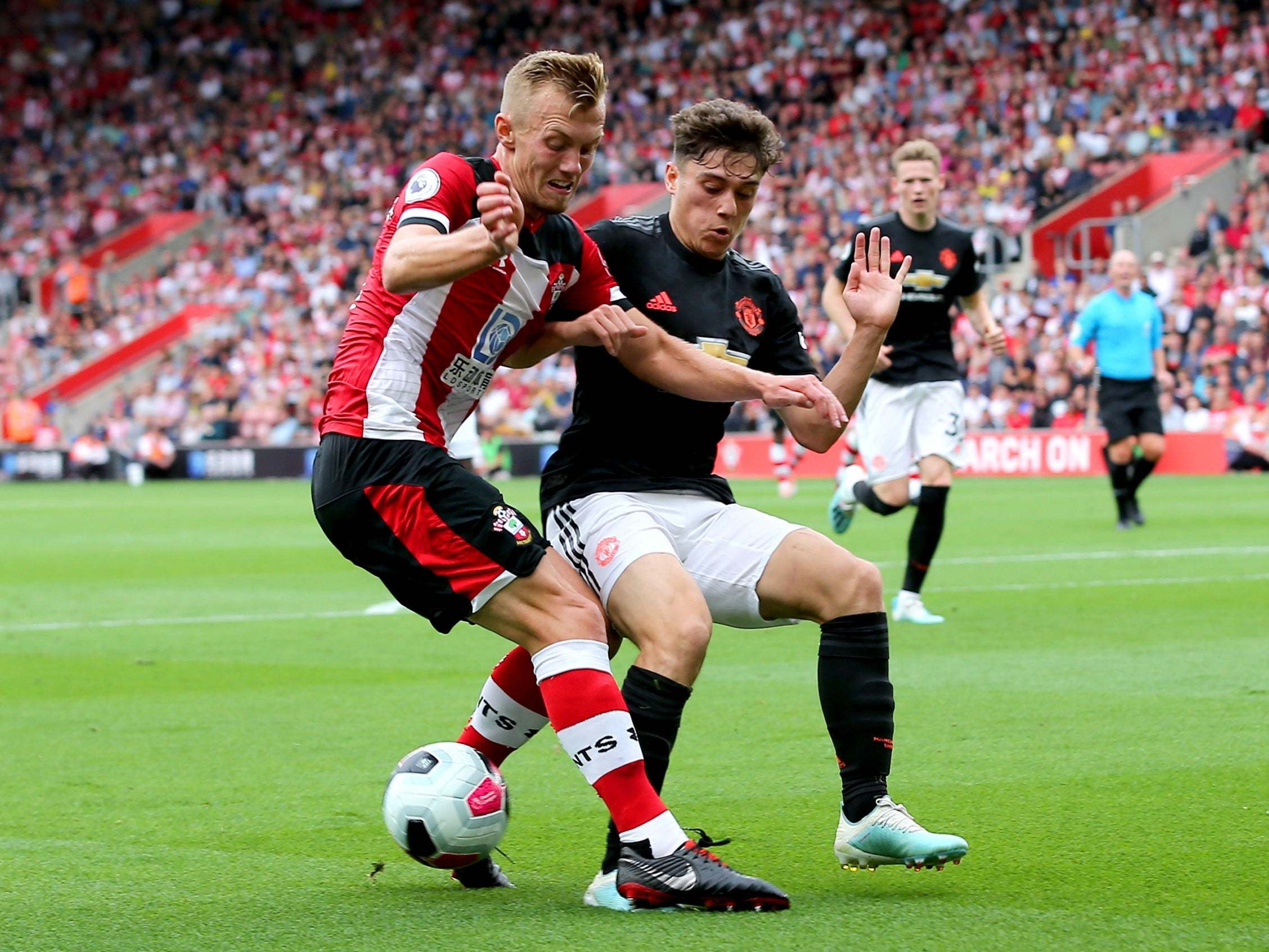
Better midfields than Manchester United’s may also exploit the sitting two, you feel, but when everyone is fit, Hasenhuttl will be able to slot his preferred pieces into a system he is truly content with.
Coming with a fine reputation after a strong stint in Germany with FC Ingolstadt and RB Leipzig, Hasenhuttl has somewhat flattered to deceive since arriving on the South Coast, though his transformation of Southampton’s playing style and willingness to promote youth should be commended.
But with his favoured formation finally in place, we may be starting to see what all the fuss is about.
4. Southgate’s right-back conundrum complicated by Wan-Bissaka’s solidity
Aaron Wan-Bissaka’s inclusion in this week’s England squad was very much deserved, and leaves Gareth Southgate in something of a quandary.
Southgate is fortunate to have four genuine right-back options from which to choose, assuming Kieran Trippier rediscovers himself at Atletico Madrid, and all offer different qualities.
Trent Alexander-Arnold is the extra creator; Kyle Walker the up-and-down athlete; Trippier the crosser enabling a narrower midfield or three-at-the-back.
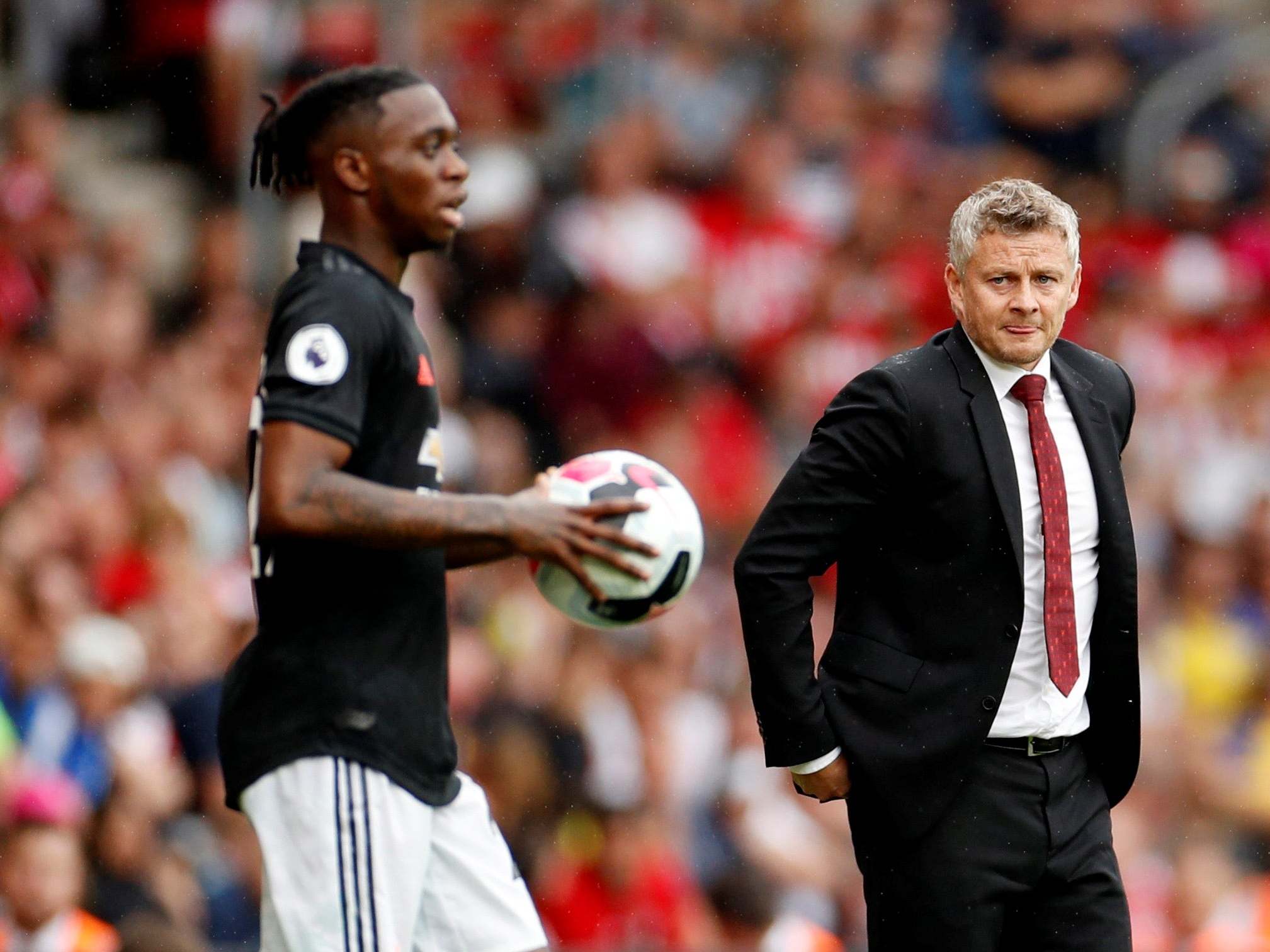
And then there is Wan-Bissaka, so stout defensively, particularly in one-on-one scenarios, and very competent as a passer in possession. While he requires further development going forward and can show his relative inexperience at times, he should very much be in Southgate’s thoughts.
While the wonderfully talented Alexander-Arnold seems to have the inside track on the long-term berth on the right of the defence, there are those around Anfield who believe his long term future may lie in midfield. Do not rule out Southgate (a forward-thinking, innovative type) recognising his potential in that area sooner rather than later, and perhaps handing Wan-Bissaka the right-back role should the Liverpool man flourish elsewhere.
5. United lack a midfield metronome
These are the games Manchester United should be controlling, and for the last half-an-hour or so of the first half, they did.
Yet during the rest of the game, the midfield area was curiously Southampton’s, with Ole Gunnar Solskjaer’s chosen midfield failing to seize and keep possession.
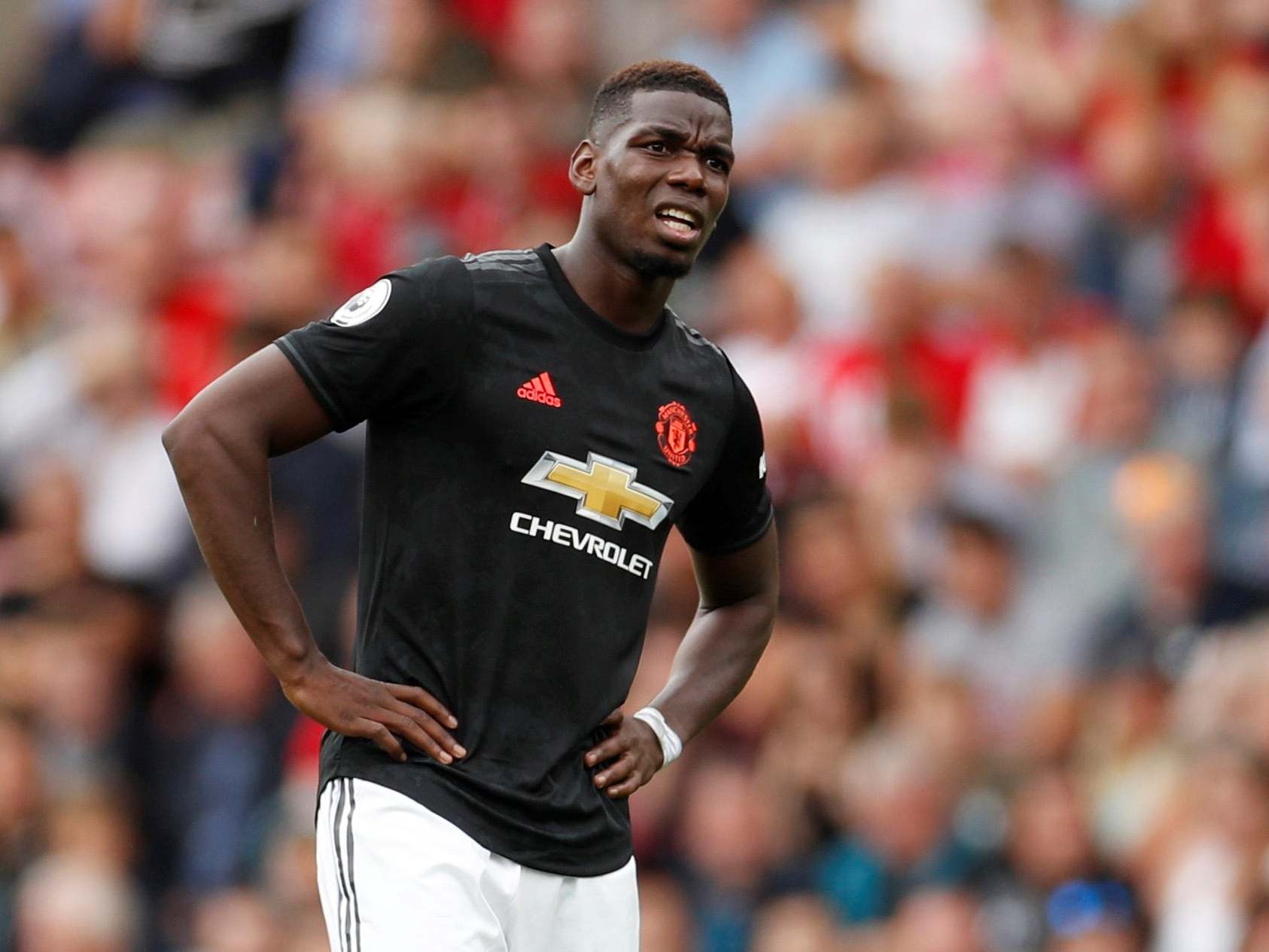
It is an underlying problem for Solskjaer. Though the Spaniard was not perfect in this role, the sale of Ander Herrera leaves them desperately short of someone to keep the game ticking over. In truth, though, Manchester United have failed to invest in such a player for a long while, instead asking Paul Pogba to do far too much, as lead creator, box-to-box worker and metronome.
That Solskjaer was forced to introduce Nemanja Matic to try and solve the issue is an indictment in and of itself. They also desperately miss a true creator, with Juan Mata a faded force. Without anyone to control affairs in midfield, and no-one to unlock the door with their passing, Manchester United are left to play smash-and-grab on the counter-attack. This can work, as the win against Chelsea showed, but against sides who keep to their defensive structures and do not over-commit themselves, they will continue to come unstuck.
Join our commenting forum
Join thought-provoking conversations, follow other Independent readers and see their replies
Comments